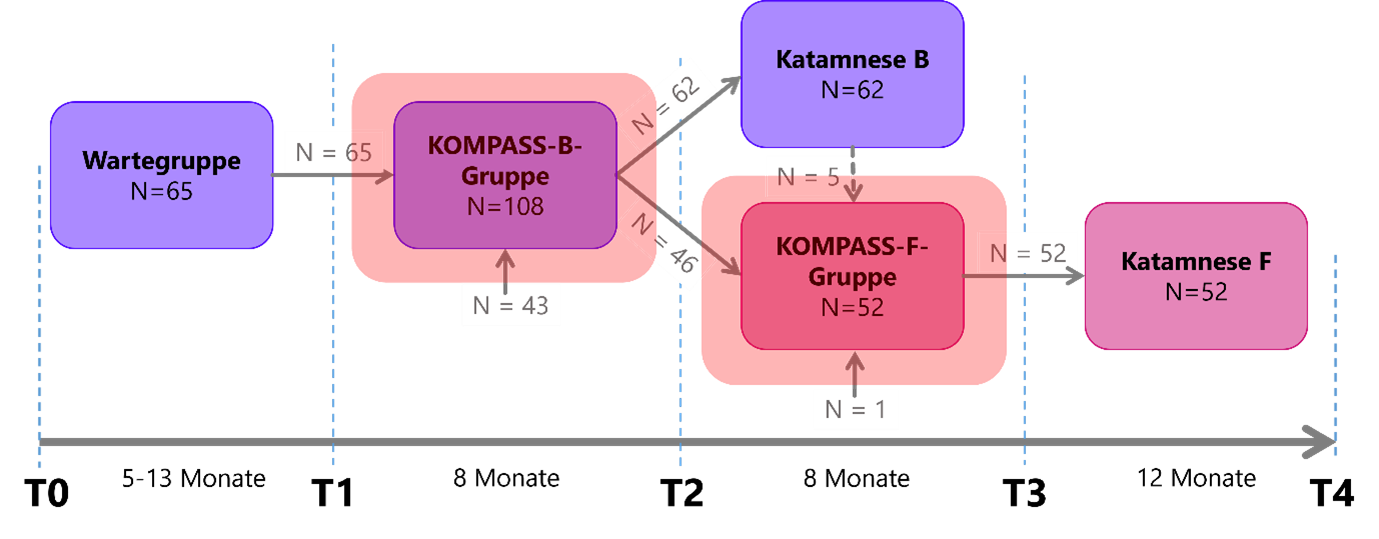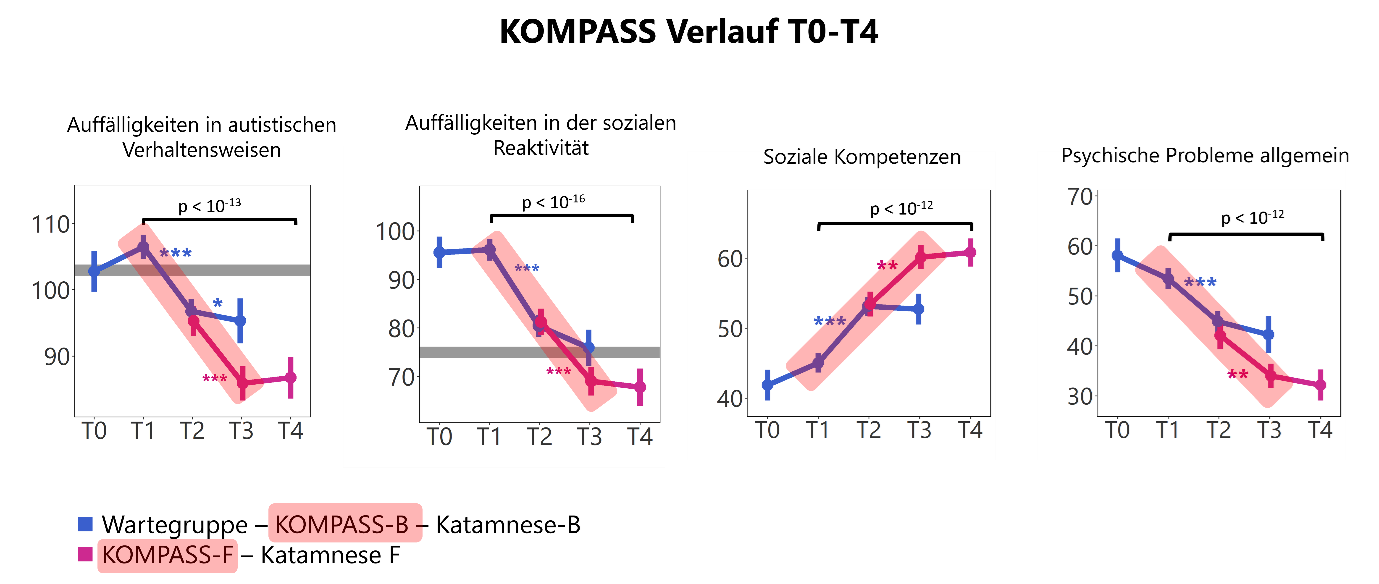COMPASS - Social skills training for teenagers and young adults with an autism spectrum disorder
During adolescence and early adulthood, increased social demands present specific challenges for individuals with autism spectrum disorder (ASD). Targeted group-based social skills training has proven to be an effective therapeutic intervention for children and adolescents on the autism spectrum. COMPASS is a therapy in a group setting in which social skills are learnt step by step. It comprises two components: basic training (COMPASS-B) and follow-up training (COMPASS-F).
Both training programmes comprise approx. 30 weekly sessions over a period of 8 months. Each session consists of theory, exercises and training tasks. The three basic modules include emotion recognition, small talk and non-verbal communication. The three F-modules cover more complex interactions (e.g. friendship, social hypothesis pictures), complex communication (e.g. active listening, argumentation) and theory of mind (e.g. forming social lies, changing perspectives).
In the evaluation of the basic training, we assessed 108 participants in our clinic using parent, teacher and self-reports as well as a computerised test. The improvements were compared with a waiting group (65 participants) before the training. Catamenesis data was collected one year after the intervention.
The continuation training was also evaluated in a separate study. After the basic training, some of the participants stopped using COMPASS, while others continued the COMPASS training with the advanced training (COMPASS-F). These two groups were compared.


Our results showed a significant decrease in visible autistic behaviour, combined with sustained improvements in social skills one year after the training. General psychiatric symptoms also improved after the intervention. Remarkably, participants from external centres showed similar improvements, confirming the effectiveness of the manual. Similar effects were also observed in the COMPASS-F group. The effect was maintained one year after the training. Both participants and carers expressed satisfaction with the training.
Overall, COMPASS-B and COMPASS-F are highly effective as training programmes and strengthen participants in their social environment.